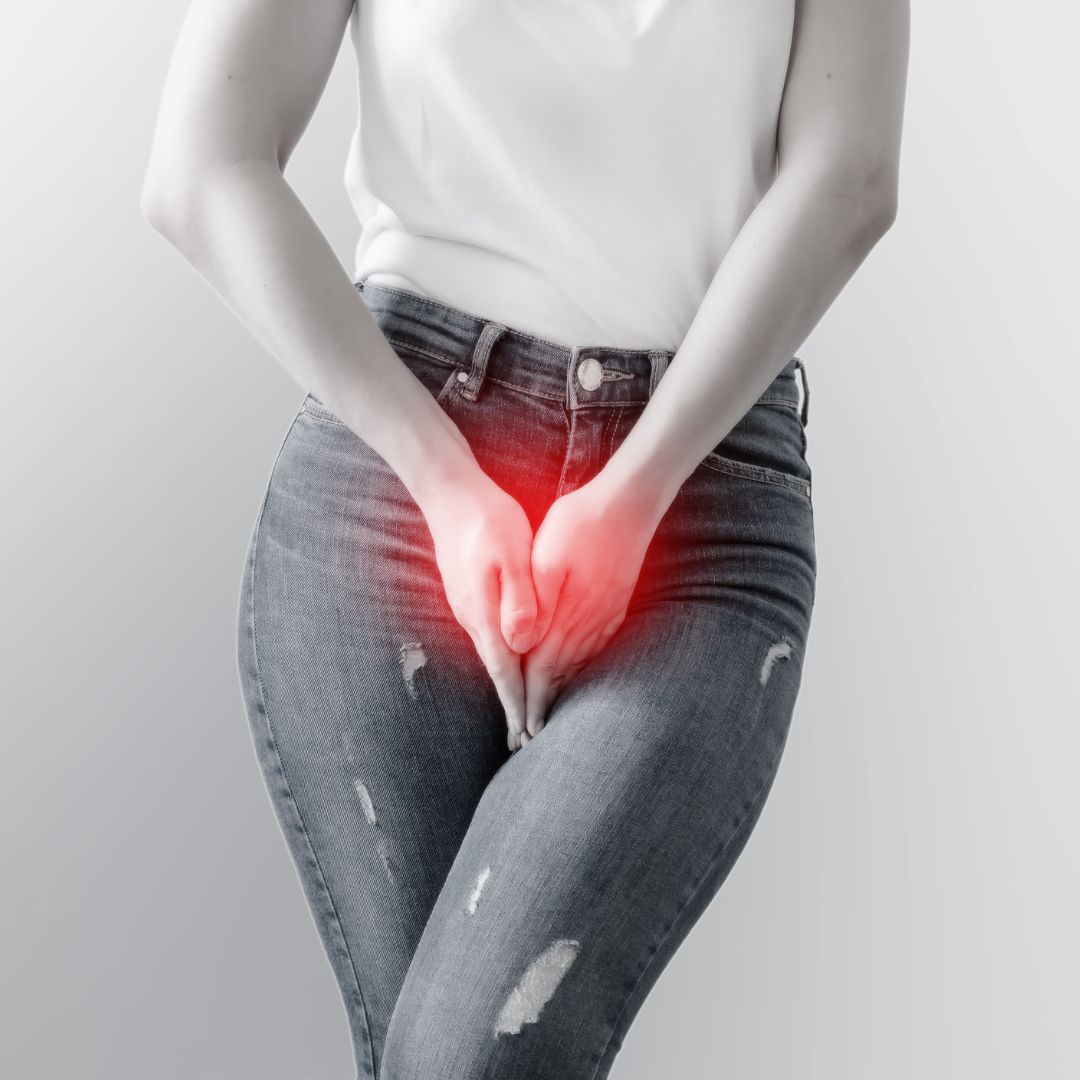Menstruation is the monthly vaginal bleeding women experience as the uterine lining is shed. Every month, an ovary releases an egg that travels down the fallopian tube to the uterus. If the egg is not fertilized, the egg and lining of the uterus are shed, resulting in menstruation. The average menstrual period lasts from 3 to 5 days, although it can vary from person to person and month to month.

Some women have heavy menstrual bleeding (menorrhagia) on a regular basis. In addition to a heavy flow, the bleeding can last for more than 7 days. Heavy menstrual bleeding can interfere with a woman’s daily life, and can cause anemia, an iron deficiency whose symptoms are weakness and fatigue. At the McKinney, TX based office of Craig Ranch OB/GYN, Dr. Andrew Schimmer and the rest of the doctors and staff will help their patients achieve a healthy, pain-free, quality of life.
Does having heavy menstrual cycles mean I will be infertile?
A woman’s menstrual cycle is a window into her fertility. They are used to help track cycles, know approximately when we’re the most fertile, and give clues to our chances to become pregnant. The flow of your menstrual cycle provides one of those clues, as both abnormally heavy or light menstrual cycles can point to issues that affect fertility.
While not a direct correlation, overly heavy menstrual bleeding can affect your ability to become pregnant. That’s because the condition often points to issues such as uterine fibroids or polyps, endometriosis, pelvic inflammatory disease, or a hormone imbalance.
Heavy Menstrual Bleeding Symptoms
It is crucial to see a doctor if your menstrual bleeding is unusually heavy or prolonged. You should seek medical advice in these cases. In addition to a heavier-than-normal menstrual flow, a woman with menorrhagia may experience the following:
- Bleeding for more than 1 week
- Large blood clots in the menstrual flow
- Constant pain in the lower abdomen
- Anemia
- Bleeding that soaks through one or more tampons or pads every hour for several consecutive hours.
- The need to use extra sanitary protection to control your menstrual flow.
- Symptoms that prevent you from doing your normal activities.
- Menstrual bleeding that lasts more than seven days.
- Signs of anemia, such as tiredness, fatigue, or shortness of breath.
- Large blood clots, larger than a quarter, during your cycle.
If a woman with heavy menstrual bleeding develops anemia, she can experience weakness, fatigue and shortness of breath.
What happens if I don’t treat my heavy menstrual bleeding?
Excessive or prolonged menstrual bleeding can lead to other medical conditions:
- Anemia — Menorrhagia can cause blood loss anemia by reducing the number of circulating red blood cells. The number of circulating red blood cells is measured by hemoglobin, a protein that enables red blood cells to carry oxygen to the tissues. Iron deficiency anemia occurs as your body attempts to make up for the lost red blood cells by using your iron stores to make more hemoglobin. Signs and symptoms include pale skin, weakness, and fatigue.
- Severe pain — Women with heavy menstrual cycles also often have painful menstrual cramping, known as dysmenorrhea. These can be severe enough to require medical evaluation and testing.
Heavy Menstrual Bleeding Causes
Heavy menstrual bleeding can be caused by various conditions or factors, including the following:
- Uterine fibroids
- Polycystic-ovary syndrome
- Hormonal imbalance
- Complications from pregnancy
- Intrauterine device (IUD)
- Polyps
- Cancer
- Certain medications

Heavy menstrual bleeding may also be caused by a platelet disorder or von Willebrand’s disease. In some cases, the cause of heavy menstrual bleeding is unknown.
What are some ways I can control my heavy menstrual cycles on my own?
If you have heavy cycles, taking iron supplements is a must, as you are a candidate to suffer from anemia due to blood loss. Taking ibuprofen (Advil, Aleve, etc.) can help you reduce your pain, menstrual cramping, and the amount of bleeding. If you’re not on the pill, changing to this form of birth control and help reduce the amount of bleeding and it will typically shorten longer cycles. The same is true of today’s FDA-approved intrauterine devices — Mirena®, Liletta®, Kyleena®, Skyla®, and ParaGard®.
See What Our Patients Have to Say!
I absolutely love this office. The staff is so friendly and they take time to get to know you on a personal level. They are always willing to accommodate your needs and make your experience a good one. They are prompt on taking you back and prompt on returning your phone calls. I wouldn’t choose another location. I highly recommend this office.
I love this place! They are never late to take you back and appointments are quick and easy. They are super knowledgable and the office is spotless. The doctor is so welcoming and listens to any concerns you may have.
How to Prepare for Your Visit
Preparing for your appointment can significantly impact the effectiveness of your consultation. To get the most out of your visit:
- Track your menstrual cycles and symptoms in a journal to discuss with your doctor.
- List all medications, vitamins, or supplements you currently take.
- Write down any significant changes in your life or stressors that could be affecting your health.
- Prepare a list of questions for your healthcare provider to ensure you cover all your concerns during the visit.
- Consider bringing a family member or friend for support and to help remember the information discussed.
Questions to Ask at Your Visit
Effective communication with your doctor can help in managing your condition better. Ensure to ask:
- What might be causing my heavy menstrual bleeding?
- Are there tests I need to undergo to diagnose the cause of my bleeding?
- What treatment options are available, and which do you recommend for me?<
- What are the potential side effects of the recommended treatments?
- How will these treatments interact with my current medications?
- Could my menstrual bleeding affect my ability to conceive?
Diagnosing Heavy Menstrual Bleeding In McKinney, TX
Heavy menstrual bleeding may be diagnosed through a physical examination, and review of the patient’s medical history. One of our doctors may want to perform Additional diagnostic tests which may include the following:
- Blood tests
- PAP tests
- Endometrial biopsy
- Ultrasound
A hysteroscopy may be performed to view the inside of the uterus, and determine whether fibroids, polyps or other problems are causing the heavy bleeding.
Can heavy menstrual bleeding lead to emergency room visits?
Having menorrhagia is not uncommon. It is estimated that 1 in 20 women who menstruate have heavy cycles lasting more than 7 days or passing large blood clots.
Can this become an emergency situation? Yes. If you experience severe, acute bleeding in which you soak through four or more pads or tampons in a two-hour period that merits an immediate trip to the hospital.
Candidates for Menstrual Bleeding Treatment
Heavy menstrual bleeding, clinically known as menorrhagia, is classified as menstrual bleeding lasting more than 7 days. It can also be defined as very heavy menstrual bleeding, much above normal levels.
How do you know if this is what is happening? If you need to change your tampon or pad after less than 2 hours or if you pass blood clots the size of a quarter or larger, that is heavy bleeding. That amount of bleeding merits a visit with our team at our McKinney, TX gynecology office.

Treatment For Heavy Menstrual Bleeding In McKinney, Texas
Treatment for heavy menstrual bleeding varies depending on whether there are any underlying conditions. Iron supplements to treat anemia, and anti-inflammatory medication to reduce the amount of bleeding, are often prescribed. Dr. Schimer and the rest of our providers can offer Additional treatments that may include the following:
- Oral Contraceptives: These can help regulate menstrual cycles and reduce the severity of bleeding.
- Hormone Therapy: Using hormones like progesterone to balance hormonal levels and reduce bleeding.
- Tranexamic Acid: This medication helps reduce menstrual blood loss and is especially useful in treating menorrhagia.
- Nonsteroidal Anti-Inflammatory Drugs (NSAIDs): Drugs such as ibuprofen can relieve pain and reduce menstrual blood loss.
If conservative methods are unsuccessful, surgery may be necessary. Surgical procedures we offer may include the following. Surgical treatments are considered based on the underlying cause of heavy bleeding:
- Endometrial Ablation: A procedure that destroys the lining of the uterus to reduce or stop bleeding.
- Myomectomy: Removal of uterine fibroids that may be causing increased bleeding.
- Uterine Artery Embolization: Aimed at shrinking fibroids by cutting off their blood supply.
In severe cases, a hysterectomy may be recommended.
- Hysterectomy: In severe cases where other treatments fail and the patient does not plan to conceive in the future, removal of the uterus may be recommended.
Recovery after treatment
Whether there will be recovery after our treatments to help with your heavy menstrual cycle depends upon the treatment approach we use. Hormone therapy or changing your birth control methods obviously don’t require recovery. Neither does the use of antifibrinolytic medications.
Surgical treatments will involve recovery. Dilation and curettage doesn’t involve difficult recovery. Nor does endometrial ablation. However, a hysterectomy is a major surgery and will include a lengthy recovery.
When we’re designing your treatment to reduce your menstrual bleeding, we’ll discuss what you can expect for recovery, if there will be one.
Schedule A Consultation
To schedule your consultation at our McKinney, TX office, call 214.544.6600 The providers at Craig Ranch OB/GYN are proud to serve patients in McKinney, Plano & Allen, TX areas.
